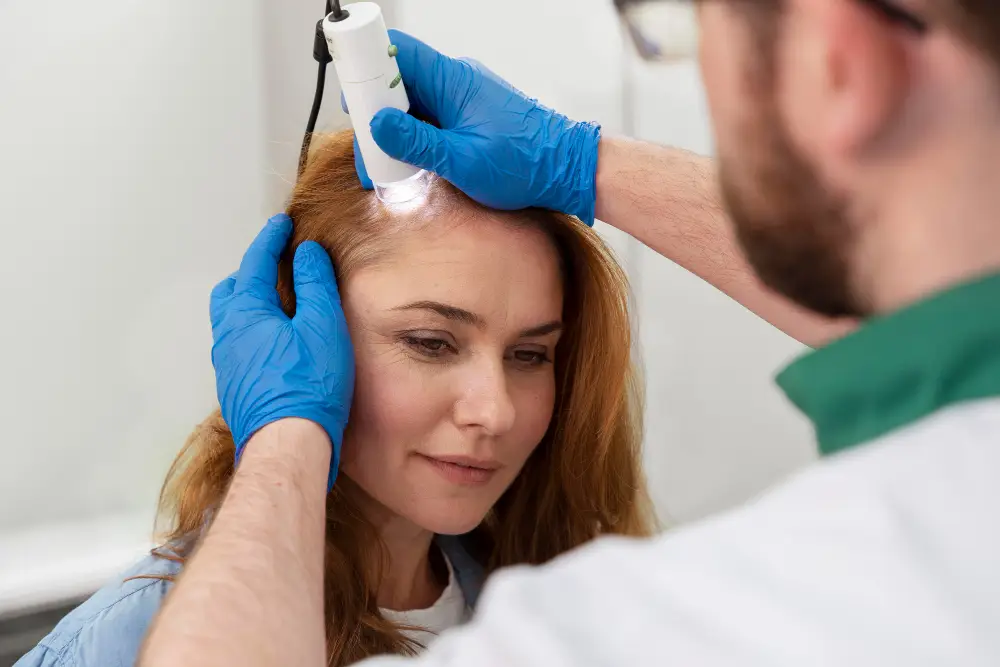
Authored by a Lead Medical Communicator for the Regencord Team, Pereira, Colombia
Stem Cells for Cancer Treatment: Navigating Ethical Options and Your Patient Journey
Key Takeaways
- **Understanding the Spectrum:** “Stem cells for cancer treatment” encompasses a wide range of approaches, from established hematopoietic stem cell transplants for blood cancers to investigational therapies targeting cancer stem cells or modifying the tumor microenvironment.
- **Ethical & Evidence-Based Focus:** Reputable care pathways prioritize rigorous scientific backing, ethical oversight, and individualized patient reviews, distinguishing them from unproven or speculative treatments.
- **The Patient’s Central Role:** For those navigating complex cancer diagnoses, finding truly personalized, supportive, and transparent care is paramount, especially when exploring advanced or international options.
- **Pereira, Colombia as a Destination:** Pereira offers a unique blend of modern medical infrastructure, a patient-centric approach, and a supportive environment, providing an accessible and often more cost-effective pathway for those exploring advanced care, under a robust regulatory framework (INVIMA).
- **Beyond the Label:** Understanding how treatments like immunotherapy and targeted therapy intersect with stem cell research is crucial for making informed decisions.
- **Your Next Step:** A confidential, comprehensive case review is essential to determine if any regenerative medicine pathways or advanced therapies are suitable for your specific situation.
Table of Contents
- Introduction: Charting Your Course in Cancer Care
- The Stakes: Understanding the Critical Implications of Cancer and Stem Cell Research
- The Conventional Approach to Cancer Care in the USA, Canada, and the UK
- The Pereira, Colombia Advantage: A Holistic Environment for Advanced Care
- The Regenerative Care Compass: Your Guide to Pereira
- Our Regenerative Philosophy and Approach to Cancer Support
- Overcoming Common Hesitations: Why Seeking Clarity is a Strategic Advantage
- Glossary of Key Terms
- Frequently Asked Questions About Stem Cells and Cancer
- Take the Next Step: Your Confidential Case Review
- Disclaimer
Introduction: Charting Your Course in Cancer Care
Facing a cancer diagnosis can feel like navigating an uncharted ocean, especially when exploring advanced or innovative treatment avenues like those involving stem cells. The sheer volume of information, often conflicting or overly technical, can be overwhelming. At Regencord, our goal is to serve as your compass, providing clear, ethical, and deeply contextualized insights into the role of stem cell research and its potential applications in cancer care. We understand the profound emotional weight, the questions, and the hopes that accompany this journey. This guide is designed to empower you with knowledge, allowing you to discern credible pathways from speculative claims, and to understand how a patient-centric environment in Pereira, Colombia, might offer a unique and supportive option.
This discussion will explore the complex landscape of stem cells in oncology, how they intersect with other advanced treatments like immunotherapy and targeted therapy, and the vital role of understanding your options from an informed perspective. Our focus is on education, transparency, and empowering you to make decisions with confidence, grounded in scientific understanding and ethical consideration.
The Stakes: Understanding the Critical Implications of Cancer and Stem Cell Research

Cancer remains a formidable global health challenge, affecting millions worldwide. The search for more effective, less toxic, and highly personalized treatments continues to drive intensive research. Within this scientific frontier, the role of stem cells has emerged as a topic of significant interest and, at times, considerable confusion.
What are Stem Cells, and How Do They Relate to Cancer?
Stem cells are the body’s raw materials—cells from which all other cells with specialized functions are generated. Under the right conditions in the body or a laboratory, stem cells divide to form more cells called daughter cells. These daughter cells either become new stem cells (self-renewal) or become specialized cells (differentiation) with a more specific function, such as blood cells, brain cells, heart muscle cells, or bone cells. This unique capacity for self-renewal and differentiation makes them invaluable for regenerative medicine and a subject of intense cancer research.
In oncology, the term “stem cells” can refer to two very different, yet related, concepts:
- Hematopoietic Stem Cell Transplants (HSCT): These are established, life-saving procedures primarily used for certain blood cancers (like leukemia and lymphoma) and some non-cancerous blood disorders. HSCT involves replacing a patient’s unhealthy blood-forming stem cells with healthy ones from a donor or the patient’s own body after high-dose chemotherapy or radiation. This is a conventional, highly regulated treatment. As highlighted by the U.S. National Institutes of Health (NIH), HSCT has been a cornerstone of treatment for specific hematologic malignancies for decades.
- Cancer Stem Cells (CSCs): This refers to a small subpopulation of cells within a tumor that possess stem cell-like properties, including self-renewal and the ability to differentiate into various cancer cell types. Research suggests these cells may be highly resistant to conventional therapies, capable of initiating new tumors, and are implicated in cancer recurrence and metastasis. Targeting CSCs is a major focus of ongoing investigational research, aiming to develop new approaches to prevent relapse and overcome treatment resistance.
The Tumor Microenvironment and Beyond
Beyond cancer stem cells, the broader concept of the tumor microenvironment – the complex ecosystem of cells, blood vessels, and molecules surrounding a tumor – is another crucial area. Research into how stem cells, particularly mesenchymal stem cells, interact with this environment is exploring potential ways to modulate it to make tumors more vulnerable to therapy or to reduce treatment side effects. This area is largely investigational, with studies often published in PubMed-indexed peer-reviewed journals. The National Cancer Institute (NCI), part of the NIH, provides extensive resources on the complex interplay within the tumor microenvironment and its implications for therapy.
The Promise of Immunotherapy and Targeted Therapy
Alongside stem cell research, immunotherapy and targeted therapy represent significant advancements in cancer treatment. Immunotherapy harnesses the body’s own immune system to fight cancer, while targeted therapies specifically attack cancer cells with minimal harm to healthy cells. These approaches are often discussed in tandem with future regenerative strategies, as they represent highly individualized pathways to treatment. The World Health Organization (WHO) continuously monitors and reports on global advancements in cancer treatment, including the growing impact of immunotherapies.
The Conventional Approach to Cancer Care in the USA, Canada, and the UK

In countries like the USA, Canada, and the UK, cancer care is typically delivered through highly structured, multi-disciplinary teams within established healthcare systems. These systems are renowned for their rigorous clinical protocols, emphasis on evidence-based medicine, and comprehensive regulatory oversight by entities such as the U.S. Food and Drug Administration (FDA), Health Canada, and the European Medicines Agency (EMA), respectively. Standard treatments often include surgery, chemotherapy, radiation therapy, immunotherapy, and targeted therapy, individually or in combination. For specific blood cancers, hematopoietic stem cell transplants are a well-established and approved pathway.
While these systems offer high-quality care, patients frequently encounter challenges such as:
- Access and Wait Times: Especially in publicly funded systems, access to cutting-edge therapies or specific medical professionals can involve significant wait times.
- Cost: In market-driven systems, the financial burden of advanced cancer treatments can be astronomical, even with insurance.
- Limited Options for Recurrent/Refractory Cancers: Patients with cancers that no longer respond to conventional treatments often feel they have exhausted their options within their home country’s framework, prompting a search for investigational or novel approaches.
- Navigating Complexity: The sheer volume of information and treatment choices can be overwhelming, making it difficult to find truly personalized guidance.
These challenges often lead individuals and their families to explore international care options, seeking solutions that may offer different approaches, greater accessibility, or a more personalized patient journey.
The Pereira, Colombia Advantage: A Holistic Environment for Advanced Care

For patients considering advanced biological or regenerative medicine pathways for cancer support, Pereira, Colombia, offers a compelling and often overlooked advantage. This is not simply about seeking an ‘alternative’ but discovering a meticulously designed patient journey within a modern, regulated, and deeply empathetic healthcare environment.
Modern Medical Infrastructure and Regulatory Excellence
Colombia has made significant investments in its healthcare sector, leading to state-of-the-art hospitals and clinics. The country’s regulatory body, INVIMA (National Institute of Food and Drug Surveillance), operates under robust standards, ensuring medical facilities and pharmaceutical products adhere to national and often international guidelines. This rigorous oversight means that patient safety and ethical practice are paramount. The Colombian Ministry of Health sets comprehensive guidelines for healthcare provision, ensuring high standards across the nation.
At Regencord, the team operates within this well-regulated framework, emphasizing the importance of medically reviewed, ethical approaches to advanced therapies. We understand that transparency about scientific validity and regulatory status is non-negotiable.
A Patient Journey Designed for Support and Clarity
Patients exploring advanced treatment options for cancer, particularly those involving innovative biological approaches, often arrive at the point of considering international care after exhausting or becoming disillusioned with conventional pathways in their home countries. This journey is marked by profound emotional weight, demanding a care environment that not only offers clinical excellence but also holistic support, clear communication, and efficient logistical coordination to alleviate the immense stress on both the patient and their family. The transition from searching for hope to actively pursuing a treatment plan abroad requires careful navigation, emphasizing the need for a transparent, step-by-step process that builds trust and manages expectations.
Our approach in Pereira is centered around alleviating the logistical and emotional burdens of international medical travel:
- Comprehensive Case Review: Every patient begins with a confidential, in-depth review of their medical history, diagnosis, and previous treatments. This ensures that any potential pathway considered is genuinely appropriate and grounded in their unique situation.
- Personalized Pathway Planning: No two cancer journeys are identical. We focus on developing highly individualized plans that integrate seamlessly with your overall care strategy, always within an ethical and evidence-informed framework.
- Dedicated Patient Advocacy: Our team acts as a central point of contact, coordinating everything from initial inquiries and medical record compilation to travel logistics, accommodation, and on-site support, bridging any cultural or language gaps.
The Holistic Healing Environment of Pereira
Pereira, Colombia, as a medical destination, uniquely combines high-standard medical infrastructure with a naturally restorative environment and a lower cost of living, which significantly reduces the ancillary burdens of extended international medical stays. The availability of highly skilled medical professionals, many with international training, operating within a robust national regulatory framework (e.g., from INVIMA), provides a foundational layer of clinical credibility. Furthermore, the cultural warmth and patient-centric approach prevalent in Colombian healthcare, coupled with an emerging focus on biological and regenerative therapies, positions it as an appealing alternative for patients seeking personalized attention and innovative treatment modalities that might be less accessible or prohibitively expensive elsewhere.
Beyond the clinical setting, Pereira offers:
- Natural Beauty: Nestled in the heart of Colombia’s Coffee Region, Pereira boasts a mild climate and lush, green landscapes. This serene environment can contribute significantly to emotional well-being during treatment.
- Cultural Warmth: Colombian hospitality is renowned. Patients and their families often find comfort in the welcoming community and the attentive, compassionate nature of the local healthcare providers.
- Cost-Effectiveness: While never compromising on quality, the cost of medical care and living expenses in Pereira can be significantly lower than in the USA, Canada, or the UK, making advanced treatments more accessible without adding financial strain.
The Regenerative Care Compass: Your Guide to Pereira

To help navigate the complexities of considering advanced cancer support internationally, the Regencord team has developed “The Regenerative Care Compass: Your Guide to Pereira.” This branded patient resource is designed to provide a structured framework for evaluating your options and preparing for a potential journey to Pereira.
What The Regenerative Care Compass Helps You With:
- Self-Assessment Checklist: Helps you evaluate your readiness for international travel and advanced care, considering physical and logistical factors.
- Information Gathering Guide: A detailed list of medical records, diagnostic results, and personal health information crucial for a comprehensive, confidential case review.
- Logistical Planning Aid: Outlines key steps for travel, visa considerations (if applicable), accommodation options, and understanding local customs and support services.
- Question Generator: Prompts to help you formulate critical questions for your confidential case review, ensuring all your specific concerns and hopes are addressed transparently.
- Understanding the Regenerative Approach: Explains how personalized support and ethically considered biological pathways can be integrated into your broader cancer journey.
This resource underscores our commitment to transparency and empowering you with all the necessary tools for an informed decision-making process. It is a proactive step to transform the perception of a complex process into a manageable, supported pathway, emphasizing the role of our patient advocacy team.
Our Regenerative Philosophy and Approach to Cancer Support

At Regencord, our philosophy is deeply rooted in supporting the body’s innate capacities for health and resilience. While the term “stem cells for cancer treatment” often evokes images of direct tumor eradication, our approach, especially in the context of advanced biological therapies, is more nuanced and patient-centric. We focus on pathways that are either scientifically established, ethically pursued within rigorous investigational frameworks, or designed to enhance the patient’s overall well-being, immune function, and quality of life alongside conventional oncology.
Our commitment is to:
- Ethical Transparency: We prioritize clarity on the scientific evidence, regulatory status, and expected outcomes of any treatment pathway. We do not promote unproven or unverified claims.
- Personalized Review: Every patient’s situation is unique. Our team conducts thorough, confidential case reviews to assess if any advanced biological or regenerative medicine approaches are appropriate and aligned with current medical understanding for their specific diagnosis. This is an educational process, not a guaranteed offer of treatment.
- Holistic Integration: We believe in considering the whole patient. This involves not only potential advanced therapies but also supportive care that addresses nutrition, emotional well-being, and lifestyle factors to optimize the body’s environment.
- Collaboration: We encourage open dialogue with a patient’s existing medical team. Our goal is to provide comprehensive information that can inform collaborative decision-making, ensuring continuity of care.
It is important to reiterate that while the field of stem cell research in oncology is rapidly evolving, not all applications are equally validated. Our focus is on providing access to potential pathways that align with ethical scientific principles and offer a genuine, reviewed possibility for patients seeking options beyond their current scope of care.
Overcoming Common Hesitations: Why Seeking Clarity is a Strategic Advantage
When considering advanced medical care, particularly internationally, it’s natural to have reservations. We’ve identified several common concerns among patients exploring options for cancer support, and we address them with clarity and verifiable facts.
“Is receiving medical care in Colombia safe or legitimate, especially for something as complex as cancer and stem cells?”
This is a critical and valid concern. We address it directly by focusing on verifiable facts. Colombia boasts a robust healthcare infrastructure, with many facilities meeting international standards. The country’s regulatory body, INVIMA, plays a crucial role in overseeing medical products and practices, akin to the FDA in the USA. Our commitment is to pathways that are ethically sound and grounded in scientific rationale, distinguishing carefully between established treatments (like HSCT, which we support for eligible cases through referral) and investigational approaches, ensuring proper oversight. This shifts the focus from fear of the unknown to an understanding of a well-regulated system.
“This sounds too complicated and overwhelming. I wouldn’t know where to start, especially with a cancer diagnosis already draining me.”
We understand the immense emotional and physical toll a cancer journey takes. Our response to this logistical anxiety is to outline a clear, step-by-step patient journey. From your initial confidential case review to coordinating travel, accommodation, and on-site support, our dedicated patient advocacy team simplifies the process. This transforms the perception of a complex journey into a manageable, supported pathway, emphasizing that you are not alone.
“How can I be sure the quality of care in Colombia is comparable to what I’d receive in the USA or Canada?”
This concern about quality is paramount. We highlight Colombia’s significant investments in healthcare, leading to modern facilities and highly trained medical professionals, many with international education and experience. The regulatory environment, through INVIMA, ensures adherence to national and often international standards. Our approach is to facilitate access to care that prioritizes patient safety and ethical practice, providing a transparent look at the standards maintained, and emphasizing that “cost-effective” does not mean “lower quality” but rather reflects different economic realities.
“I fear being financially exploited or pushed into an expensive treatment without clear justification.”
Transparency is a cornerstone of our ethos. We recognize the financial pressures of cancer care. Our process begins with a comprehensive, confidential case review, which determines candidacy *before* any treatment plan is discussed. We ensure all potential pathways are thoroughly explained, including rationale, expected duration, and clear cost estimates, allowing you to make an informed decision without pressure. Our aim is to provide access to potentially life-changing options that may be more accessible than in your home country, but always with full disclosure and ethical consideration.
Glossary of Key Terms
- Cancer Stem Cells (CSCs): A subpopulation of cancer cells within a tumor thought to be responsible for tumor initiation, growth, resistance to therapy, and recurrence.
- Hematopoietic Stem Cell Transplant (HSCT): A medical procedure that replaces blood-forming stem cells that have been destroyed by high doses of chemotherapy or radiation therapy. Primarily used for blood cancers.
- Immunotherapy: A type of cancer treatment that helps your immune system fight cancer.
- INVIMA: Colombia’s National Institute of Food and Drug Surveillance, the national regulatory agency responsible for overseeing the safety and quality of food, drugs, medical devices, and other health-related products and services.
- Mesenchymal Stem Cells (MSCs): A type of adult stem cell with the ability to differentiate into various cell types, often explored for their immunomodulatory and regenerative properties in investigational therapies.
- Regenerative Medicine: A branch of medicine that focuses on repairing, replacing, or regenerating damaged or diseased cells, tissues, or organs.
- Targeted Therapy: A type of cancer treatment that uses drugs or other substances to precisely identify and attack cancer cells, usually by interfering with specific molecules involved in tumor growth and survival.
- Tumor Microenvironment: The complex ecosystem surrounding a tumor, including blood vessels, immune cells, fibroblasts, signaling molecules, and the extracellular matrix, all of which can influence tumor growth and response to therapy.
Frequently Asked Questions About Stem Cells and Cancer
- What is the role of stem cells in modern cancer treatment?Stem cells play two primary roles. First, hematopoietic stem cell transplants are an established treatment for certain blood cancers. Second, research into cancer stem cells and their role in tumor development, recurrence, and resistance is a major area of investigation for future therapies, often explored alongside immunotherapy and targeted therapy. It’s crucial to distinguish between these established and investigational applications.
- How do cancer stem cells differ from normal stem cells, and why are they important?Cancer stem cells (CSCs) are a subset of cancer cells within a tumor that share properties with normal stem cells, such as self-renewal and differentiation. However, CSCs specifically perpetuate the cancer. They are important because they are believed to be highly resistant to conventional treatments and contribute to relapse, making them a key target for developing new therapies.
- Can stem cell therapy be used for solid tumors, or only blood cancers?Hematopoietic stem cell transplants are primarily for blood cancers. For solid tumors, the use of stem cells is largely investigational, focusing on areas like targeting cancer stem cells, modulating the tumor microenvironment, or using stem cells as vehicles for drug delivery. These are active areas of research, not typically standard approved treatments, and require careful ethical and scientific review.
- What are the risks and benefits of using stem cells for cancer treatment?For established treatments like HSCT, risks include infection, graft-versus-host disease, and organ damage, balanced against the potential for remission. For investigational stem cell therapies in cancer, the risks and potential benefits are still being understood through clinical trials. Benefits are hoped to include improved efficacy, reduced side effects, and better outcomes, especially for hard-to-treat cancers. Any potential pathway requires a thorough risk-benefit analysis by medical professionals.
- How do stem cell therapies for cancer interact with or complement immunotherapy and targeted therapy?These advanced approaches are often seen as complementary. For example, some investigational stem cell-based strategies aim to enhance the immune system’s ability to fight cancer (synergizing with immunotherapy) or target specific pathways in cancer stem cells that also relate to targeted therapies. Understanding these intersections is key to developing integrated, personalized cancer care strategies.
- Is international stem cell treatment for cancer safe and regulated?Safety and regulation vary significantly across the globe. In Colombia, health authorities like INVIMA provide oversight for medical facilities and practices, aiming to ensure safety and ethical conduct. However, patients must exercise due diligence, verifying the scientific basis and regulatory status of any offered treatment. Reputable facilities prioritize transparency and evidence-based care.
- What should I look for in a clinic offering advanced cancer treatments involving biological approaches?Look for transparency regarding scientific evidence, regulatory approvals (both local and international where applicable), and specific outcomes data. Prioritize clinics that offer a comprehensive, individualized case review; have a multidisciplinary team; and openly discuss risks, benefits, and costs without making unverified claims. Ethical oversight and patient advocacy are crucial.
Take the Next Step: Your Confidential Case Review
The journey through a cancer diagnosis is deeply personal, and the decisions you face are among the most critical of your life. While exploring the landscape of stem cell research, immunotherapy, and targeted therapies can be complex, remember that clarity and informed action are your most powerful allies.
Discover if you are a candidate for the advanced biological or regenerative medicine pathways available through the team at Regencord in Pereira, Colombia. Our dedicated patient advocacy team is here to provide the detailed information and compassionate support you need.
Contact us for a confidential case review. Let us help you navigate your options with transparency, ethical guidance, and a commitment to your well-being.
Disclaimer: This article is for informational and educational purposes only and does not constitute medical advice, diagnosis, or treatment. It is not intended to be a substitute for professional medical advice, diagnosis, or treatment. Always seek the advice of your physician or other qualified health provider with any questions you may have regarding a medical condition. Regencord offers services as a medical provider in Pereira, Colombia, focused on advanced biological and regenerative medicine pathways. Veris Salus LLC acts solely as a marketing and patient-coordination facilitator for Regencord. Neither Regencord nor Veris Salus LLC makes any claims of clinical superiority, guarantees of outcome, or promises of ‘cures’ for any condition. All treatment decisions must be made in consultation with a qualified medical professional, based on an individualized assessment of the patient’s specific condition and medical history. The information provided herein is subject to change without notice and is not exhaustive of all treatment options or considerations.



